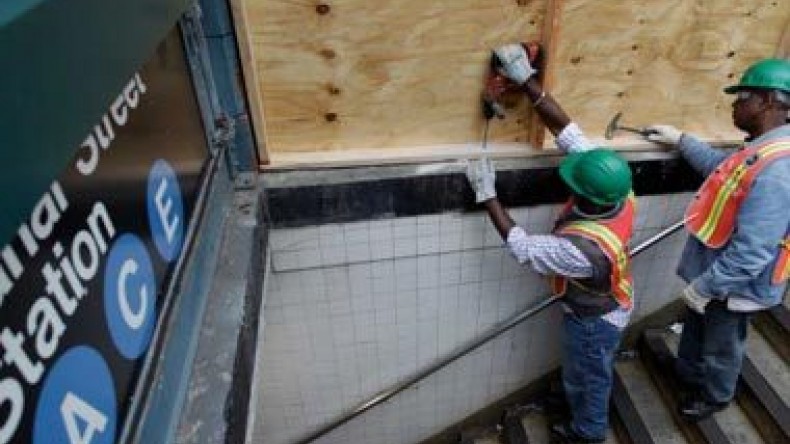
NYC schools, transit to close ahead of storm
New York City shut down its mass transit system, closed its schools and ordered hundreds of thousands of people to flee their homes Sunday in the face of increasingly dire predictions about the wall of water that could hit the nation's largest city as part of the superstorm bearing down on the East Coast, AP reported.
A seawater surge of anywhere from 6 to 11 feet threatened to swamp parts of lower Manhattan, flood subway tunnels and knock out the underground network of power, phone and high-speed Internet lines that are the lifeblood of America's financial capital.
Subway, bus, Metro-North and Long Island Rail Road service were all suspended Sunday night. Officials said bridge and tunnel closings would be decided on a "case-by-case basis."
While the New York Stock Exchange will close its trading floor, Big Board trading will continue electronically.
The United Nations announced plans to close on Monday and canceled all meetings at its headquarters.
After days of seeming to take the storm in stride, New Yorkers packed grocery stores for supplies and scrambled to get out of flood zones.
Clutching a white pillow in her left hand and two computers in another, Alyssa Marks rushed to get to the subway before it stopped running Sunday evening.
As she hurried to leave her apartment in a lower Manhattan evacuation zone for a friend's place on higher ground, she'd gotten cash but had not time to get toiletries and water.
"I'm nervous, but I'm also excited," she said as she left her apartment. "We're going to get some wine, cuddle up and watch movies."
Still, some hardy residents said they weren't going anywhere, even as the mayor urged them to go.
"If you don't evacuate, you're not just putting your own life in danger — you are also endangering the lives of our first responders who may have to come in and rescue you," Mayor Michael Bloomberg said at a news conference Sunday as he announced a mandatory evacuation affecting 375,000 people in low-lying areas from the beaches of Queens to the glassy high-rises of Battery Park City. "This is a serious and dangerous storm."
After days of more modest warnings, the tone grew sharper Sunday as the National Hurricane Center predicted "life-threatening flooding" for areas including New York Harbor. Louis Uccellini, the National Oceanic and Atmospheric Administration's environmental protection chief, called the projected storm surge "the worst-case scenario" for New York City, Long Island and northern New Jersey.
Gov. Andrew Cuomo deployed National Guard troops to the city and Long Island as President Barack Obama signed an emergency declaration enabling the federal government to provide support and resources to state and local governments.
Newsfeed
Videos






























